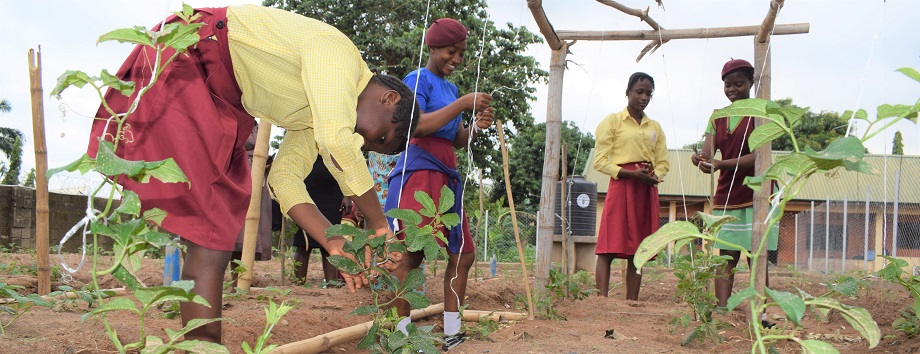The CPF for Nigeria describes FAO’s medium term assistance priorities and results, derived from nationally defined priorities and objectives, to be achieved over the five-year period of the country’s programming cycle (2023-2027).
The rationale for these four priority areas stems from the national commitment to attain sustainable national food and nutrition security, as well as re-positioning agriculture as a vehicle for economic growth and employment creation, in alignment with the various strategic frameworks established by the government of Nigeria for a paradigm shift that will address agriculture from a business rather than a developmental perspective. Hence, the Government’s need for technical support and assistance as well as capacity building in value chain development.
Environment, climate change and population growth challenges are putting pressure on Nigeria’s natural resources. These are compounded by natural and man-induced disasters, which often result in draw backs to development.
The CPF reaffirms FAO Nigeria commitment, together with her key international resource partners, the government and communities, continued support and a pledge to deliver on our mandate to the government and the good people of Nigeria.
Priority Area 1: SUSTAINABLE AND INCLUSIVE AGRI-FOOD SYSTEMS FOR IMPROVED PRODUCTIVITY
FAO support to the government would be by strengthening inclusive, climate smart agrifood value chains and diversified production systems as well as inclusive economic development through decent jobs.
This pillar targets to pursue the following strategic themes:
Improved productivity along the agriculture value chain benefitting women and men.
Innovative, resilient, gender-responsive and climate smart agriculture production processes.
Improved capacity for digitalization skill development for women and men.
Improved strategies, Policy implementation for decent agribusiness jobs, with a specific attention to women and the youth.
Identification and monitoring of pest and disease prevention, early-warning, and management of local and national health risks.
One health.
Priority Area 2: INCREASING RESILIENCE OF FOOD AND AGRICULTURE – BASED LIVELIHOOD SYSTEMS
Under this pillar, FAO's support to the Government of Nigeria would be by strengthening national, state, local and community-level capacities for disaster risk management, anticipatory action, efficient response to agricultural threats, emergencies, and resilience building.
The pillar targets to pursue the following strategic themes:
Early warning and early action systems.
Capacity to monitor threats and assess current and future risks, shocks and vulnerabilities, including gender-related ones.
Humanitarian activities including rehabilitating, resettling, and reintegrating individuals into their respective communities, with a specific attention to women and the youths.
Priority Area 3: HEALTHY AND NUTRITIOUS DIETS:
By supporting enhanced food security and improved nutrition, including promoting nutritious food and increasing access to healthy diets.
This pillar pursues the following strategic themes:
Food safety and quality systems for all.
Food and nutrition security for all.
Reduction of wastes and post-harvest losses, with specific attention to women processors.
Hand-in-Hand (HIH) Initiative
Priority Area 4: SUSTAINABLE NATURAL RESOURCE MANAGEMENT AND CLIMATE ACTION
By supporting improved Sustainable natural resource management and climate action.
Nigeria is implementing a Climate Change policy approved in 2022. Some of the expected outcomes of the Climate Change policy include reduction in vulnerability to climate change impacts across all sectors and improved social, cultural, economic, and ecological resilience.
The strategic themes pursued by this pilar are:
Climate Action and Climate finance.
Natural resource and ecosystem Management.
Increased and inclusive access to clean affordable and sustainable energy.

